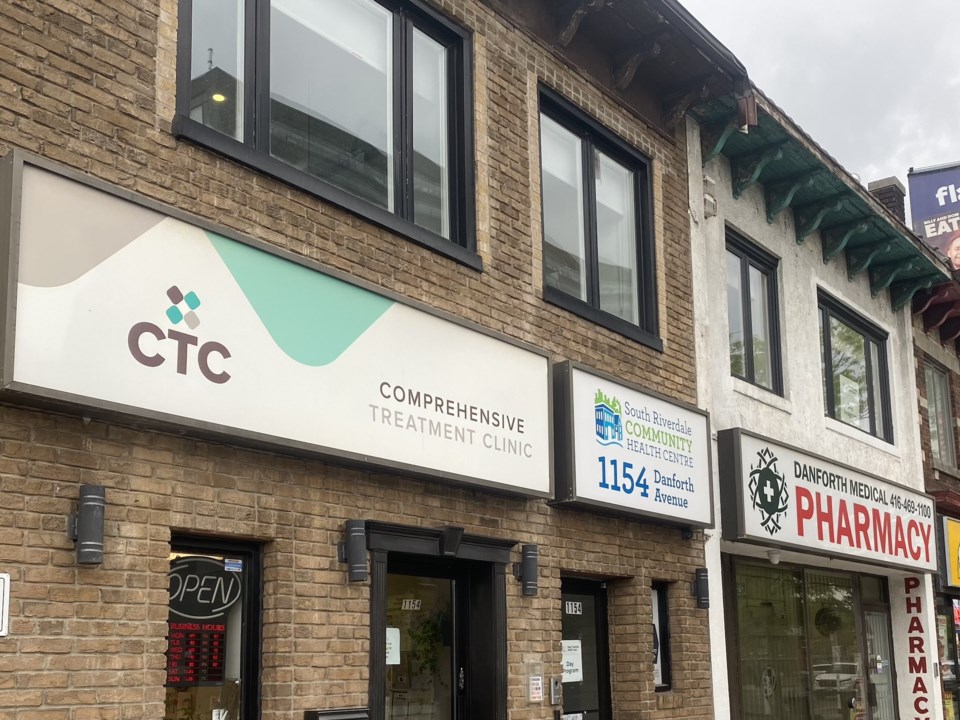When the province forced five Toronto supervised consumption sites to close on March 31, the next day was supposed to bring something better: the immediate “opening” of four new HART hubs.
Premier Doug Ford’s government said its new treatment centres — dubbed Homelessness and Addiction Recovery Treatment (HART) hubs — would open on April 1 and provide a plethora of services to help people suffering from homelessness and addiction.
HART hubs were touted as a new model of care by Ford and his ministers — backed up by over half a billion dollars in province-wide spending — that focused on getting people off drugs rather than giving users a safe place to consume and receive lifesaving care if they overdosed.
“They’re going to provide mental health supports. They’re going to provide pathways and treatment out of addiction. They’re going to support supportive housing. We are moving away from a system that enables people to continue to use illicit, illegal drugs, and we are changing to a system that takes people to a pathway to treatment,” Health Minister Sylvia Jones said on Nov. 19, 2024.
However, over two months since the sites seemingly opened, it’s unclear what new services, if any, are available at the city’s HART hubs.
Three of the four HART hubs are wrapped into pre-existing health care and harm reduction facilities that appear to be operating much as they were before April 1.
All of the hubs have received some startup funding from the province but more fulsome operational agreements that will fund future services have taken longer to hammer out.
The province hoped to have them inked by mid-April, according to an April 1 comment from Jones’ spokesperson. On Tuesday, Jones’ spokesperson said the agreements have been “shared” with all the hubs but remain under a “review process.”
“In the meantime, we’re ensuring services continue without interruption,” the spokesperson said.
TorontoToday visited three of Toronto’s four HART hubs to find out how they’re actually operating and what has changed since supervised consumption sites closed.
Solid information was hard to find. Several email, phone and in-person interview requests with site operators went unanswered or were denied.
Parkdale Queen West Community Health Centre HART Hub - 168 Bathurst St.
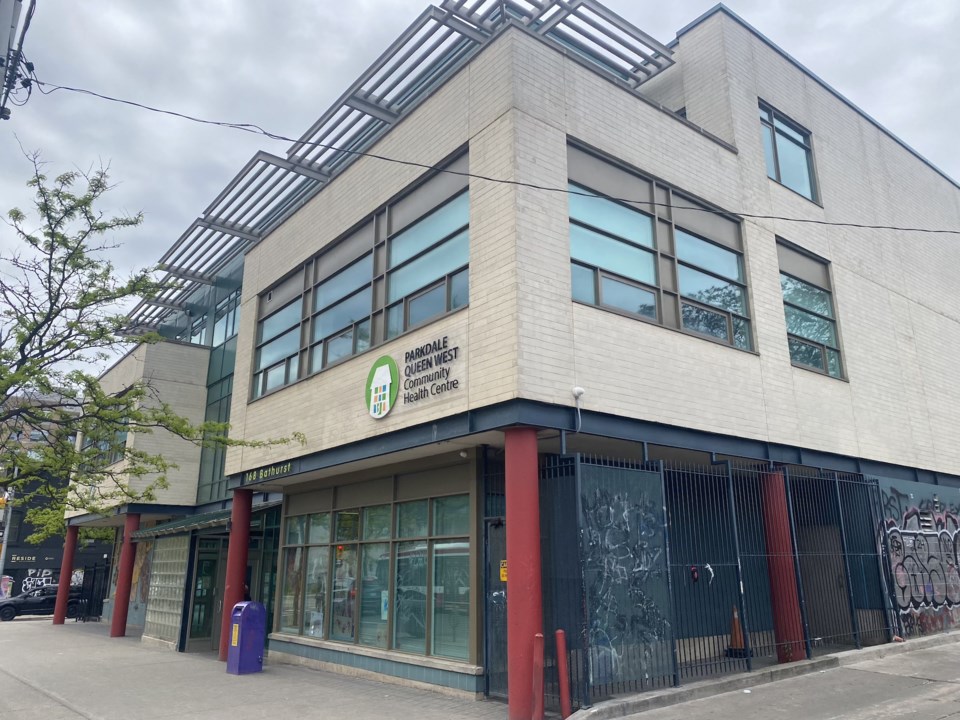
At the Parkdale Queen West Community Health Centre at 168 Bathurst St., there’s little evidence of anything new.
The facility has provided a range of health care services for years. It ran a supervised consumption site steps from the main building, at the northwest corner of Bathurst and Queen Streets, that was shut down.
TorontoToday repeatedly tried to contact representatives to figure out what HART hub-specific services are currently offered but never received a response.
On its website, the province said the Parkdale hub will offer “essential stabilization services such as food security, money management, employment support, psychiatric care, access to treatment and outpatient addictions support” as well as primary care, new supportive housing units and more.
Regent Park Community Health Centre HART Hub - 464 Dundas St. E.
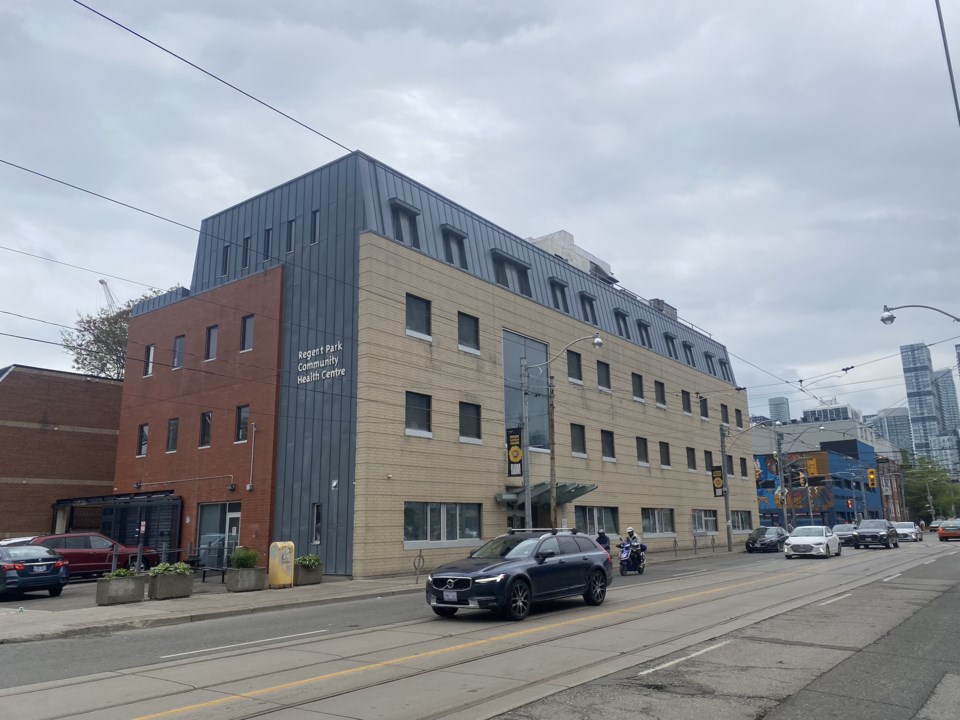
Much the same goes for the HART hub on 465 Dundas St. E., which is the continuation of the long-running Regent Park Community Health Centre — minus the safe consumption site.
Like the Bathurst Street site, several email, phone and in-person interview requests went unanswered.
The Regent Park Community Health Centre’s website touts its “50 years of history” and offerings of over 30 programs and services.
The Regent Park HART hub will prioritize people who have been homeless for over six months and “face complex challenges, supporting their stabilization, treatment and recovery,” according to the provincial website.
It’s supposed to offer people primary health care, psychiatric and substance use treatment, “intensive” case management, along with providing tenancy and eviction support, and supportive housing units in partnership with other social services organizations.
South Riverdale Community Health Centre HART Hub - 1154 Danforth Ave.
The east end HART hub sits on the second floor of a pharmacy, across the street from the Danforth Early Learning and Child Care Centre.
Potential clients are greeted by a handwritten poster on the door directing them to use the elevator in the pharmacy to access the hub.
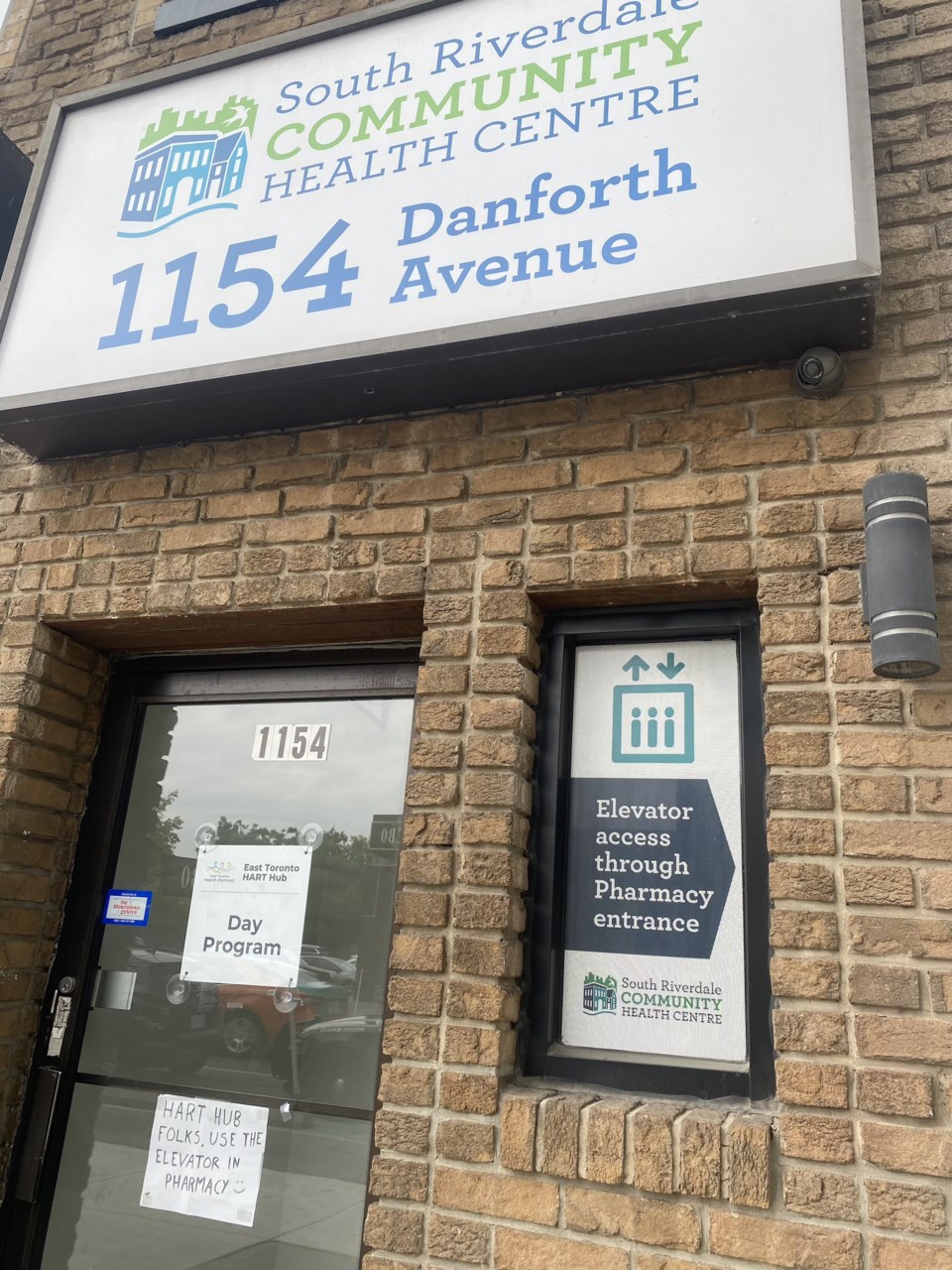
The only other signs indicating there’s a HART hub at this address are an “East Toronto HART hub day program” poster on the ground floor door and another in the second floor window.
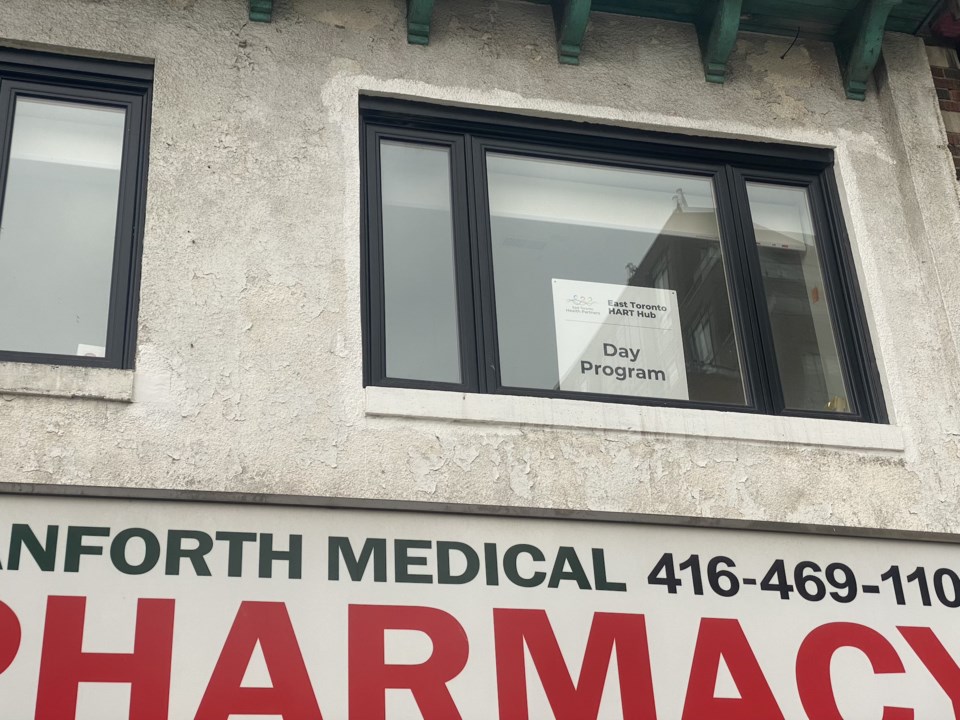
This sparse HART hub on the Danforth is the replacement for the now-closed supervised consumption site on Queen Street East in Leslieville. The health centre where that consumption site used to operate remains open and continues to offer other harm reduction programming.
Toronto Public Health HART Hub
The only site that provided a window into its operations was one run by the City of Toronto at 117 The Esplanade.
The temporary facility is currently home to the former Toronto Public Health (TPH) clinic at 277 Victoria St., which housed The Works safe consumption site and provided many other health care services. It closed earlier this year and the city has yet to nail down a permanent location.
A recent report to Toronto’s board of health said the only HART hub-specific service currently provided at The Esplanade site is opioid agonist treatment, which uses medication to reduce cravings and prevent withdrawal.
TPH is still offering other services, like mobile outreach clinics, out of The Esplanade site but those are separate from the HART hub program.
Other services, like supportive housing, detox beds and primary care, will come later this year, or in 2026. The report said the city must wait for the provincial funding agreement to come through before it can expand its offerings.
“We're hoping that when we actually have the full stream of services and funding that follows it, we'll be able to provide the services to people of Toronto,” Coun. Chris Moise (Toronto Centre) chair of the city’s board of health, said on Tuesday
Prior warnings
In November, an auditor general report raised concerns with the province’s process for rolling out HART hubs and warned about a gap in services.
The provincial government “did not develop a comprehensive plan to assess and quantify the impacts on public health and Ontario’s health system” before closing the sites, according to the report.
In the 2022-23 fiscal year, the four Toronto safe consumption sites had over 50,000 visits and prevented over 860 overdoses.
The Works, the former TPH-led site on Victoria Street, was the busiest by far, with over 25,000 visits and 511 overdoses prevented.
The province also “did not conduct formal consultations with all affected external stakeholders, such as users of the sites being closed and high-risk populations,” the auditor’s report said.

